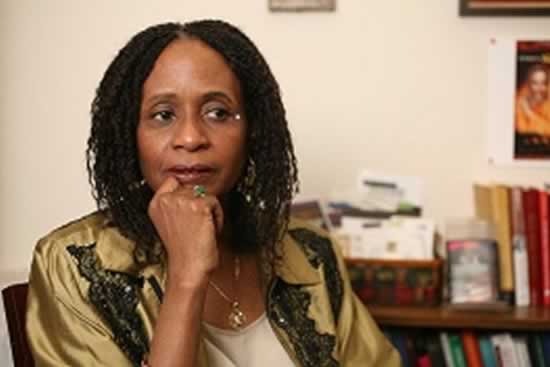GUEST EDITORIAL
Where Do We Go From Here?
By Brenda M. Greene, Ph.D.

Dr. Brenda M. Greene
W.E.B. DuBois, born 150 years ago, prophesized in the forethought to The Souls of Black Folk, that “The problem of the twentieth century is the problem of the color line.” It is clear that DuBois’ prophecy is still relevant in the 21st century.
America has a race problem and we witness it daily in our criminal justice system, housing system, health care system, educational system, and politics. The Charlottesville Anniversary of the white supremacist rally, the criminalization of Black men, women, and youth in the prison industrial complex, the killing of unarmed Black youth and men, and the poor performance of too many of our youth in our public schools attest to the evidence that the color line is still a problem in the 21st century. Although these issues may appear to be related to social justice, equity and class, they are inextricably linked to race and the problem of the color line.
As I reflect on the last two years of the insidious rhetoric, racism, and sexism that we have been subjected to and witnessed in politics and the media, I am reminded of the dramatic rise in race riots and lynching during the post-Reconstruction era in our country. We are once again witnessing how people in our nation have responded to their perception of a loss in power, changing demographics, and the fact that a Black man was President of one of the most powerful countries in the world. The rhetoric and incidents over the last two years represent “white backlash in the making.”
Teachers are central to addressing these issues of race and related issues of equity, class, and social justice in our educational institutions. They can do this by creating classroom cultures that respect diversity and by providing students with curricula that present a full portrayal of the complexity of race in our history and literary texts.
As a professor at Medgar Evers College (MEC) for the last 38 years, I have been very conscious of my responsibility to make certain that the mission is a central part of the curriculum. MEC was formed as a result of community activists and leaders who saw a need to establish a senior college in Central Brooklyn and who worked to ensure that the mission of this College was grounded in the belief that an education should encompass academic as well as social and cultural values connected to service, leadership, and knowledge of self. Our academic programs and our Centers for Black Literature, Law and Social Justice, DuBois-Bunch and Caribbean Research support this mission. Additionally, our current and forthcoming degree programs in African Diaspora Literature and Africana Studies speak to the value of providing students with a curriculum that affirms and celebrates their culture.
As educators, we should think about the legacy we are imparting to current and future generations. The National Museum of African American History and Culture devoted exclusively to the documentation of African American life, history, and culture represents progress. Yet, there is still much to do. We have to heighten student awareness about racism and injustice and develop classroom cultures that address these issues. #
Professor, writer and scholar, Dr. Brenda M. Greene is Founder and Executive Director of the Center for Black Literature, Director of the National Black Writers Conference and Chair of the English Department at Medgar Evers College of the City University of New York.
